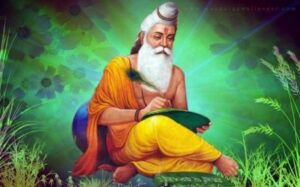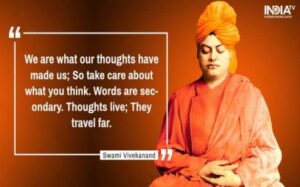Vedanta and Hindu Culture
Hindu culture is believed to be at least five thousand years old. It has been able to maintain unbroken continuity for such a long time, overcoming innumerable internal dissensions, many invasions by foreign hordes and two centuries of subjugation by a European power, mainly because of the spiritual vitality of the Hindu religious tradition which forms its living core. The Hindu religious tradition itself is a vast and complex confederation of religions which has no founder, no defining creed and no centralized authority. Nevertheless, it has maintained overall coherence, vitality and far-reaching influence for many centuries, mainly because it is based on a dynamic philosophy of life known as Vedanta.
Hindu culture is believed to be at least five thousand years old. It has been able to maintain unbroken continuity for such a long time, overcoming innumerable internal dissensions, many invasions by foreign hordes and two centuries of subjugation by a European power, mainly because of the spiritual vitality of the Hindu religious tradition which forms its living core. The Hindu religious tradition itself is a vast and complex confederation of religions which has no founder, no defining creed and no centralized authority. Nevertheless, it has maintained overall coherence, vitality and far-reaching influence for many centuries, mainly because it is based on a dynamic philosophy of life known as Vedanta.
Another unique feature of Hindu culture is the spirit of religious toleration and freedom which provided a hospitable environment for numerous sects, schools of thought and alien religions to flourish alongside Hinduism. Hindu culture developed not by suppressing religious freedom or by destroying dissenting groups or alien cultures, but by integrating their best elements into its own body. Furthermore, at critical periods in the history of Hindu culture, great personages like Sri Rama, Sri Krishna, Sri Vyasa Maharishi and Sri Adi Shankaracharya appeared and facilitated this integration process.

“A Rishi is a radiant being who receives & transmits knowledge & energies to the mankind”

At the beginning of the 19th century, Western culture, with its glorification of reason and science, and proselytizing zeal, posed a great challenge to Hindu culture, while their secular values such as individual freedom, social equality and justice attracted the intelligentsia of the land. It was great legends like Sri Swami Vivekananda, Sri Swami Chinmayananda to name a few arose and met the challenge by revitalizing Vedanta and by incorporating the best elements of Western culture into it. Since the Western world itself has been in a critical situation caused by the erosion of moral and spiritual values owing to the onslaught of materialism, the Hindu way of life and Vedic practices and principles have gained great significance for people all over world.
